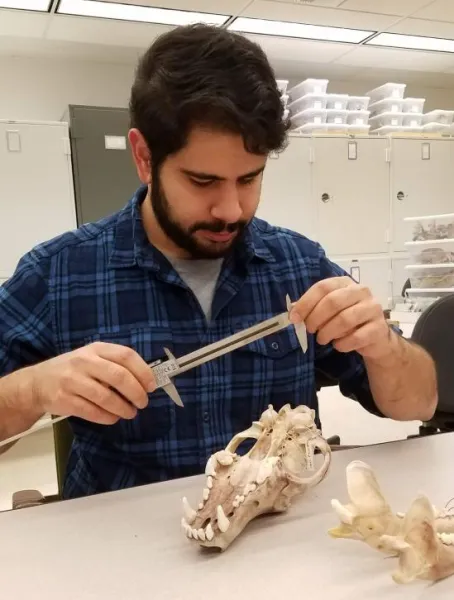NMU's Biology Department will host Diversity in STEM Week activities Feb. 5-9. On a related note, Associate Professor Diana Lafferty and NMU alumni Tru Hubbard and Sarah Trujillo co-authored a recent scientific journal publication titled “A Path Forward: Creating an Academic Culture of Justice, Equity, Diversity and Inclusion.” They analyzed faculty hiring data and practices, addressed how a lack of diverse representation impacts STEM disciplines—particularly ecology, evolution and conservation biology (EECB)—and suggested a model for change.
The paper, written with collaborators from North Carolina State University, was published in the December issue of Bulletin of the Ecological Society of America.
“Systemic issues within EECB and other STEM fields result in underrepresented populations being disproportionately lost at each stage of education and professional development,” the article states . “With limited human diversity, faculty-led EECB research may not benefit from innovation and productivity driven by human capital or from the inclusion of ideas from myriad segments of our population. Further, the impact of EECB research and instruction may not reach its full potential if principal investigators are unable to inspire students from underrepresented populations to participate in research programs or effectively convey the implications of their findings to diverse audiences.”
The authors investigated the “lack of process” in faculty searches at institutions of higher education for evaluating candidates' ability to advance diversity, equity and inclusion (DEI) objectives. They quantified the prevalence of required diversity statements relative to research and/or teaching statements for all faculty positions posted to the Eco-Evo Jobs Board from January 2019 to May 2020 as a proxy for institutional DEI prioritization.
They also mapped the job posts that required diversity statements geographically to gauge whether and where diversity is valued in higher education across the U.S. The researchers found diversity statements were required for only 30.3% of positions and the geographic distribution of institutional diversity requirements for faculty applicants did not correspond to population demographics in each state.
NMU's Biology Department has been using a DEI statement for several years, according to Biology Chair Jill Leonard. She said Lafferty was instrumental in initiating its inclusion and “it has turned out to be a very helpful metric in our hiring process.”
The authors present a model for change and call on administrators and faculty across to implement SMART (Specific, Measurable, Achievable, Realistic and Timely) strategies at higher education institutions across the United States.
“If we are truly invested in conserving biodiversity and the ecological processes on which we all depend, then we must be invested in ensuring our work reflects the needs of communities on the frontlines of environmental change. Intersectionality is as vital to cutting-edge EECB research and instruction as interdisciplinarity.”
Read the full article and suggested steps for improvement here. Learn more about NMU's Diversity in STEM week activities here.

